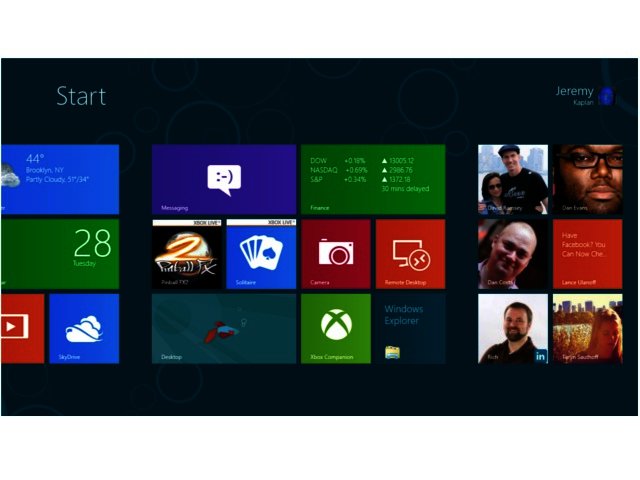PREVIOUS ARTICLENEXT ARTICLE
NEWS

Most Windows 8 versions will exclude DVD playback by default
By Ryan Noik 7 May 2012 | Categories: news
In a move that is being called ‘weird’ by some, apparently not all versions of Windows 8 will accommodate DVD playback as part of the operating system (OS).
Instead, this feature will be limited to the Media Centre version of the OS. Users of other iterations will instead need to buy the Windows 8 media centre pack to enable this functionality, at a price that has yet to be announced.
Acquiring either the Windows 8 Media Centre Pack or the Windows 8 Pro Pack will provide users with Media Centre, including DVD playback (in Media Centre, not in Media Player), broadcast TV recording and playback (DBV-T/S, ISDB-S/T, DMBH, and ATSC), and VOB file playback.
According to Microsoft’s blog, the decision was made due to the changing media consumption landscape, as well as for cost reasons.
Reasons and rationale
Bernardo Caldas, from Microsoft’s Windows Business Group explained that the media landscape had changed “quite significantly” since the release of Windows 7, adding that its research indicates that the vast majority of video consumption on the PC and other mobile devices was coming from online sources such as YouTube, Hulu, Netflix, and other online video services.
“On the PC, these online sources are growing much faster than DVD and broadcast TV consumption, which are in sharp decline. Globally, DVD sales have declined significantly year over year and Blu-ray on PCs is losing momentum as well. Watching broadcast TV on PCs, while incredibly important for some, has also declined steadily,” he elaborated.
Caldas explained that traditional media playback requires a specialised set of decoders (and hardware) that cost a significant amount in royalties. This, along with the fact that Windows 8 will run on more devices (namely tablets) than previous versions of the OS, has apparently raised concerns amongst Microsoft’s partners.
To the point
In short what this means is that depending Windows 8 users who plan on playing back DVDs on their PC will either need to buy the Media Centre version of the OS, pay extra for functionality that won’t otherwise be available as part of the OS, or look for a third party solution.
More interestingly though, is what the move may mean for PC usage in the future. Microsoft’s decision to discard native support for video playback is no less telling about the state of the PC – and the cost cutting nature of the industry – at the present.
It only indicates that the PC is well on its way to being even further relegated to being the last device one turns to as part of one’s entertainment setup, rather than the first.
USER COMMENTS
Most Read Articles
Read

Magazine Online
TechSmart.co.za is South Africa's leading magazine for tech product reviews, tech news, videos, tech specs and gadgets.
Start reading now >
Download latest issue
Have Your Say
What new tech or developments are you most anticipating this year?
New smartphone announcements (45 votes)
Technological breakthroughs (29 votes)
Launch of new consoles, or notebooks (14 votes)
Innovative Artificial Intelligence solutions (29 votes)
Biotechnology or medical advancements (24 votes)
Better business applications (160 votes)



